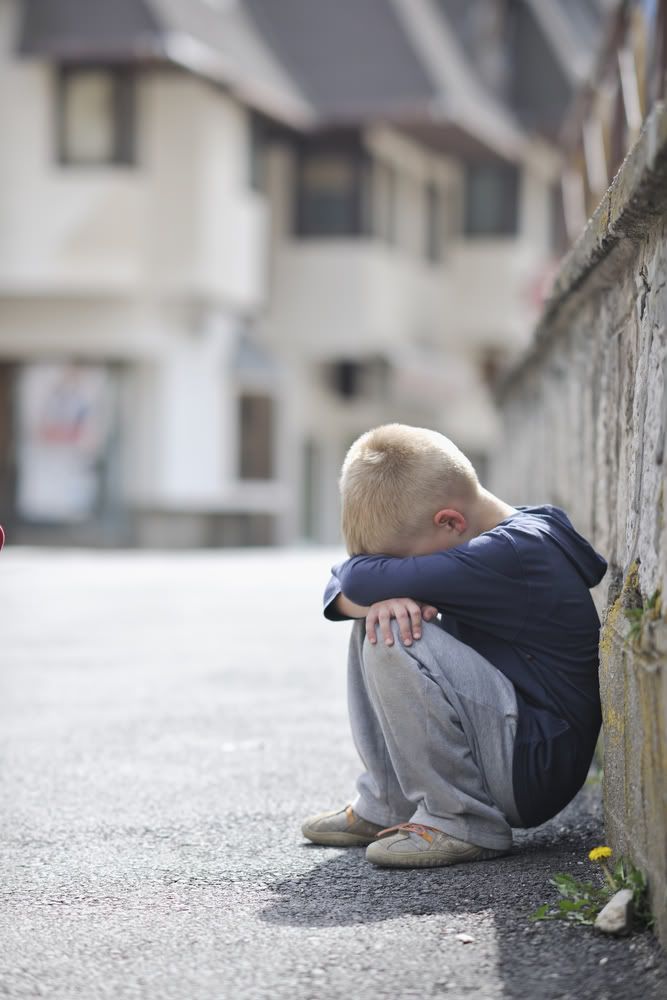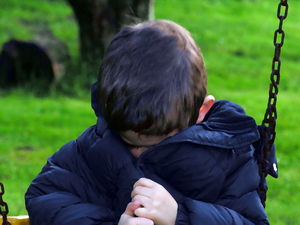If there’s anything that’s truly a fixture of the world we live in then it certainly has to be the fact that we always have to think that every child is depressed because they’re not happy. A recent BBC article really highlighted the whole depressed people thing today as it reported that 1,000 under 18s had been referred to mental health teams in Sussex.

We’ve actually had this turn up quite a few times now as a few years ago there was a big media storm over the subscribing of antidepressants to young people. Now, depression is a strange beast. It’s not something that’s imaginary, like certain people would have you believe. It doesn’t necessarily mean that the person is weak either. What it means is that when depression is genuine something needs to be done. The problem is that you can be diagnosed with depression at the slightest thing these days.
Obviously, the number of children who are depressed is going to be higher due to the fact that this isn’t something that was taken seriously; mental health problems as a whole weren’t taken seriously. We also have to acknowledge that our population has increased significantly over the years so the number of depressed people will naturally increase.
What people have to acknowledge is that being sad once in a while does not equal depression. Depression can come in many forms, but it isn’t occasional. Some depressed people may switch between happy and sad every few hours, or it may even be prolonged periods of happy and sad over months. This is depression and these people need help, they are the genuine ones, and many of the ones who claim to have depression today won’t fall into these groups.
What would make a child fall into depression, though?
I’m not going to go into the blatantly obvious things like an abusive household because that’s plain obvious and it would be an insult to dedicate half of a page to it. Some people believe that the accessibility of the world’s events is to blame. There’s no doubt that the world is a depressing place to be in, and this worry and anxiety that’s always permeated the mass media will naturally fall on the heads of children. And children will have access to all of this stuff because they are usually more technology orientated than most adults.
Another reason? Well there’s the argument that the stress of school is a major factor, but I completely disagree with this for the most part as that’s always been present and we are seeing a spike in the number of depressed children in recent years. I would agree that those who are bullied on a regular basis may garner some depression as being bullied is a traumatic experience. I, myself, was bullied and I had a horrible time for years, but luckily for me the chav bastard died at the age of 18 from an ‘unlucky’ brain aneurysm. I’m very happy about what happened and it did lift a weight off my shoulders as I did believe that justice was done, but such karmic justice isn’t present for many people. I understand that many children who don’t have their bullying issues resolved will feel cheated, and that will certainly contribute to depression.

However, what I believe the main reason is is the lack of parental love in the world these days. There’s no getting away from the fact that many depressed people don’t have the support or regular companionship of their parents. And this can be attributed to many things. Some may argue that it’s declining family values. Some may argue that it’s because most families tend to have both parents who work for long periods these days. I believe that it’s due to the fact that many parents don’t realise what they are doing. If a parent decides to forgo spending time with their child for an hour or two then what happens? Usually, absolutely nothing so they believe that everything is ok when really it’s not.
This is usually when we start seeing the spoiled brat who has all of these presents and gifts and yet they are still upset. Many people can’t fathom why someone with everything could be so upset. But what they don’t take into account is that material goods can’t substitute long-term love and affection. It just doesn’t work. There’s absolutely no correlation between amount of material goods and long-term happiness. In fact, that’s how those with everything can still become depressed. This is due to a psychological incident known as hedonic adaptation (or the hedonic treadmill), which is where humans become happy when they receive material goods and revert back to emotional stability after the initial period of euphoria is over.
Materials are temporary. Love is forever. That’s why your kids are supposedly depressed.
